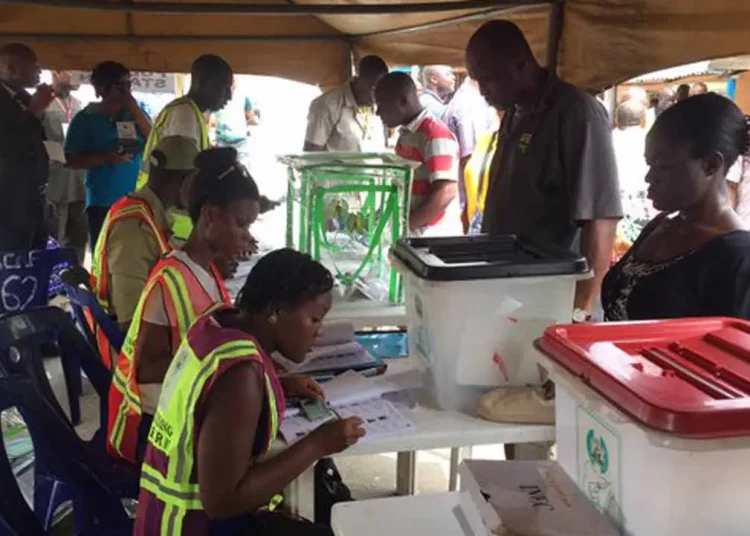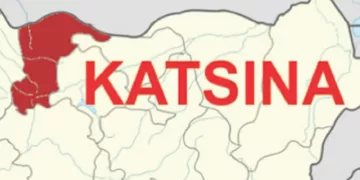Politicians, active and passive, agree on the pervasive influence of money as an overaching determinant of success or failure of participants in the elective democratic process in Nigeria. For most, separating monetary inducement from politics in the country is almost impossible and the reasons are not far-fetched.
Over time, it has come to be accepted that politicians with huge war chests, either as participants or sponsors, always have an added advantage in the outcome of elections.
What is also certain is that the phenomenon is not peculiar to Nigeria. Even in advanced democracies, politics is an expensive venture. The only difference is that in developed countries, party members and big corporations are legally permitted donate to fund political campaigns with limits. In Nigeria, a politician vying for governorship or presidency must have the capacity to fund at least 80 percent of his campaign. Elsewhere, the fund is spent on campaigns such publicity and outreach processes to sell the manifesto of the candidate and also convince the electorate to vote in his favour.
The reverse is the case in Nigeria because of the high level of poverty which makes it easy to induce voters in the country. According to the World Bank, the number of poor Nigerians is projected to hit 95.1 million in 2022. What this implies is that the influence of money in the country can only get worse.
We recall that President Muhammadu Buhari on Tuesday in a meeting with governors elected on the platform of the All Progressive Congress (APC) said the government will also ensure that Nigerians did not get intimidated, or humiliated by those in positions, or the more privileged in the 2023 presidential election.
“We will not allow anyone to use personal resources or their influence to intimidate other Nigerians. We will not allow intimidation materially, morally, or physically. This is the kind of leadership that can emerge and consolidate our nation. In six months, Nigerians will appreciate the government of APC that we are sincere and we respect them,’’ he added.
In the meantime, it is reassuring that some clergymen are leading the way in demonetising democracy in the country by rejecting monetary gifts and inducements from politicians. There was a drama recently in a Catholic church in Cross River state where an outspoken cleric, Rev. Dr John Ebele Ayah, the Bishop of Uyo Diocese, rejected a cash gift from Governor Ben Ayade.
The occasion was the thanksgiving service at St. Patrick Catholic Church, in Ikot Ansa, Calabar, in honor of Justice Emmanuel Agim Akomaye who was elevated to the Supreme Court. While Ayah, who was the officiating cleric, was presiding over the service, Governor Ayade donated N25 million to the church on behalf of his family and the state government. The Bishop took the microphone and told the governor to take the money, add to it and use the sum to pay workers’ salaries, a position which was hailed by congregants who said, “Correct Bishop, God bless you!”
Similarly, recently, a clergy of Nsukka Diocese (Anglican Communion) rejected N10m “kola” offered them by Enugu State Peoples Democratic Party (PDP) leaders. The state PDP leaders and the chairmen of the six local councils in Enugu North met with the clergymen to solicit support for next year’s general election.
We also recall that in 2015, two Islamic organisations said they rejected $3 million by the past administration to secure their members’ support for the re-election of ex-President Goodluck Jonathan.
In the considered opinion of this newspaper, these are good examples worthy of emulation. Besides, the practice of politicians inducing clergymen with money is part of the plot to exploit the fault lines of ethnicity and religion in the country. Most clergymen in the country have cult followership and their followers take their word as the gospel.
Fortuitously, with the improvement of the Independent National Electoral Commission (INEC) through the electronic transfer of results, card readers, and BIVAS machine, electoral malpractices like ballot box snatching and indiscriminate thumbing printing are soon to become a thing of the past.
However, politicians, being who they are, have already devised new means of circumventing the system through vote buying. This malaise is affecting the integrity of Nigerian elections. The menace of vote buying must be stopped. Those arrested engaging in vote buying in the Ekiti and Osun elections must be prosecuted to serve as a deterrent.
As Nigeria inches toward the 2023 presidential election, we call on Nigerians to vote for politicians who have the capacity and competence to change the country’s trajectory. During the campaign, the electorate should interrogate the campaign promises of the presidential candidates and not be swayed by ethnic or religious sentiments. Or worse, financial inducement.
On their part, we urge the electorate to vote based on their conscience and not from pressure from religious, ethnic, or political leaders who have money to burn.











